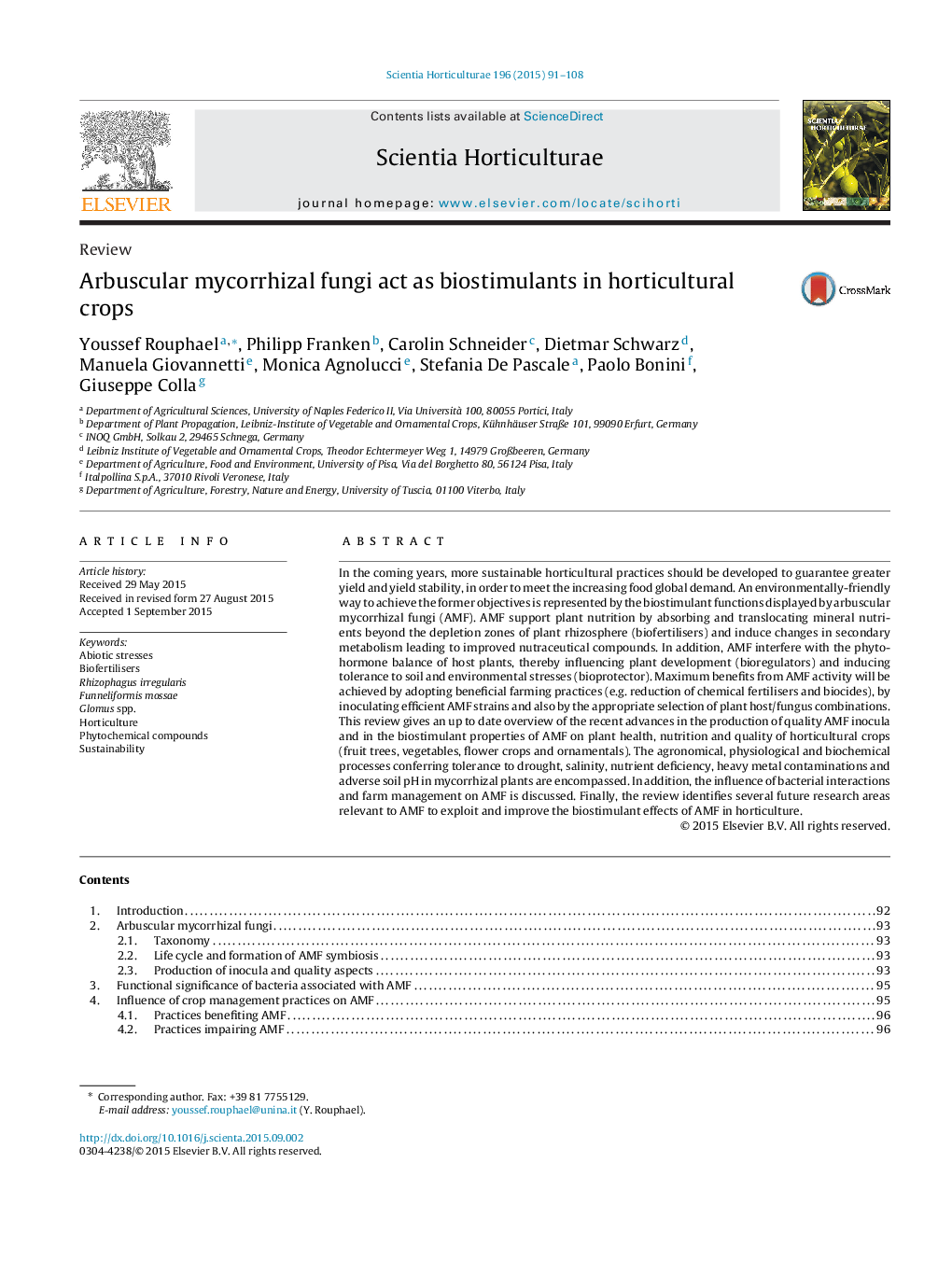| کد مقاله | کد نشریه | سال انتشار | مقاله انگلیسی | نسخه تمام متن |
|---|---|---|---|---|
| 6406476 | 1628802 | 2015 | 18 صفحه PDF | دانلود رایگان |
- Arbuscular mycorrhizal fungi act as biofertilizers, bioregulators and bioprotectors.
- Maximum benefits from AMF activity will be achieved by adopting beneficial farming practices.
- The review identifies several future researches to exploit the biostimulant effects of AMF in horticulture.
In the coming years, more sustainable horticultural practices should be developed to guarantee greater yield and yield stability, in order to meet the increasing food global demand. An environmentally-friendly way to achieve the former objectives is represented by the biostimulant functions displayed by arbuscular mycorrhizal fungi (AMF). AMF support plant nutrition by absorbing and translocating mineral nutrients beyond the depletion zones of plant rhizosphere (biofertilisers) and induce changes in secondary metabolism leading to improved nutraceutical compounds. In addition, AMF interfere with the phytohormone balance of host plants, thereby influencing plant development (bioregulators) and inducing tolerance to soil and environmental stresses (bioprotector). Maximum benefits from AMF activity will be achieved by adopting beneficial farming practices (e.g. reduction of chemical fertilisers and biocides), by inoculating efficient AMF strains and also by the appropriate selection of plant host/fungus combinations. This review gives an up to date overview of the recent advances in the production of quality AMF inocula and in the biostimulant properties of AMF on plant health, nutrition and quality of horticultural crops (fruit trees, vegetables, flower crops and ornamentals). The agronomical, physiological and biochemical processes conferring tolerance to drought, salinity, nutrient deficiency, heavy metal contaminations and adverse soil pH in mycorrhizal plants are encompassed. In addition, the influence of bacterial interactions and farm management on AMF is discussed. Finally, the review identifies several future research areas relevant to AMF to exploit and improve the biostimulant effects of AMF in horticulture.
Journal: Scientia Horticulturae - Volume 196, 30 November 2015, Pages 91-108
